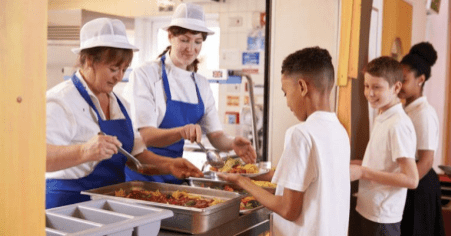On Wednesday October 21, a motion put forward by the Labour party which called for free school meals to be extended over school holidays until Easter 2021 was defeated by 261 votes to 322. The outcome was met by huge backlash across the country with more than a million people signing footballer Marcus Rashford’s petition for a review.
In England, 1.4 million children are eligible for free school meals, which have been a lifeline for families living in poverty, especially during the pandemic. But faced with spiraling public debt and unemployment due to Covid-19, the government must draw the line to its spending somewhere.
The inspiring work of Marcus Rashford, who used his platform to raise awareness on child hunger in the UK, sparked a national debate about free school meals. His activism and partnership with the charity FareShare resulted in 4.2 million meals being provided for children and families who might not otherwise have eaten during the crisis.
He successfully influenced government policy with his #MakeTheUTurn campaign, which meant 1.3 million vulnerable children received food vouchers over the summer holidays. Extending the scheme over summer cost the government £120 million whereas Eat Out to Help Out, which most likely led to the further spread of the virus, cost £522 million. Until yet another recent U-turn, Boris Johnson stood his ground, refusing to fund free meals over October half term and the Christmas holiday, despite pledging that “no children will go hungry this winter”.
As the Covid-19 pandemic surges and we face a second national lockdown, many more families will be plunged into hardship, suffering job losses and inadequate furlough and sick pay. On top of this parents should not have to worry about where their child’s next meal will come from.
The Government claims it has provided enough support, by giving councils £63 million for families facing financial difficulties. But this payment made back in June has already run out. With the second lockdown looming and public funds running dry, the government faces a difficult trade off. However, the food security of families living in poverty should not be up for debate.
Free school meals would cost the government £20 million per week, £2.30 per meal. During the pandemic, Health Secretary Matt Hancock bought £16 million worth of faulty antibody tests from China. Fifty million unwearable face masks were purchased costing £156 million, and £10 billion has been spent on a test and trace system that is still not working effectively. The money for free school meals is there, and if the government wants to solve child hunger, it can. The failure of austerity has shown that during a recession spending must go up for the economy to recover. In the long run the government can close the public debt by raising taxes or the Bank of England can increase the supply of money through quantitative easing. So, to the question ‘is there really enough money for free school meals?’ the answer is yes. Streamlining wasteful spending and targeting those who need support the most would provide enough money.
The North has been disproportionately affected by local lockdowns and many people have been dependent on the generosity of local businesses and communities in order to feed their families. Mumatz, Little Bao Boy and the Fendon are just a few places in Leeds that offered free meals during half term. Generous donations to the Leeds North and West Food bank have also been a lifeline for many families.
Although it is humbling to see communities coming together helping those in need, it should not be their responsibility to pick up the governments slack.
Photo: Shutterstock

